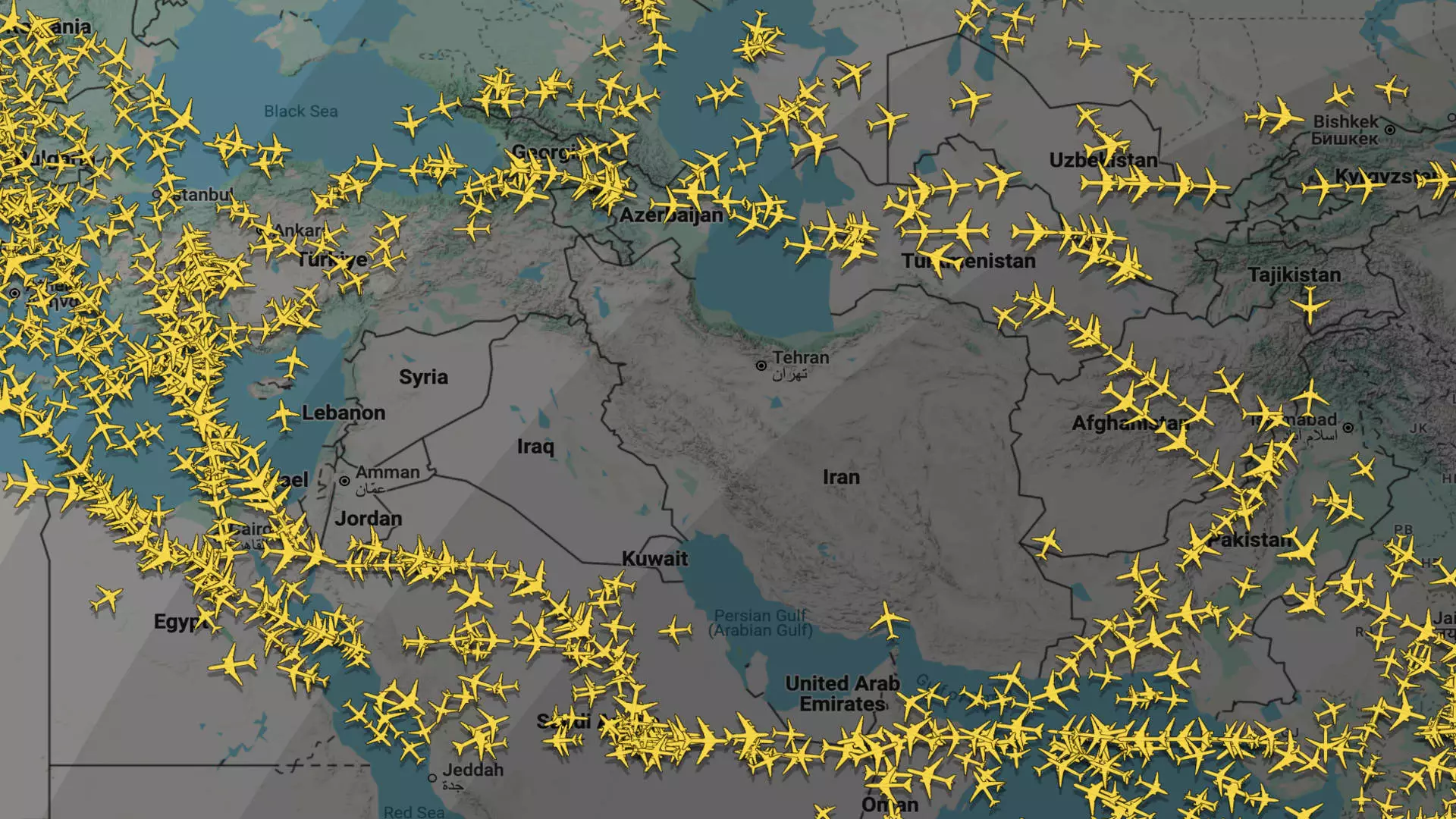As tensions boil over in the Middle East, the repercussions are profoundly affecting the aviation industry. On a recent Monday, news broke that Iran’s military had executed a missile strike on a U.S. military base in Qatar. The immediate fallout was catastrophic, with over 20 commercial flights redirected and several others returning to their points of origin. Passengers found themselves caught in a whirlwind of uncertainty, not just from routine delays, but from the very real threat posed by geopolitical strife.
This growing conflict has sparked a wave of diversions and cancellations that echoes the stakes involved. The collective decision of airlines to divert their flights indicates a serious consideration for the safety of not only their passengers but their crews and aircraft. It’s not just about a few planes rerouting; it symbolizes the fragility of international peace and the heavy burden airlines bear when regional conflict threatens to spiral.
Corporate Responsibility or Tactical Retreat?
Major airlines are finding themselves walking a fine line between maintaining their schedules and ensuring the safety of their clientele. For instance, Emirates announced that it would continue operations but reroute flights to keep them far from conflict zones. Meanwhile, Air India completely halted its services to areas within the conflict’s reach. Such actions prompt the question: Are these companies genuinely prioritizing passenger safety, or are they making tactical retreats in anticipation of consumer backlash?
Airlines like British Airways refining their schedules to cancel flights to Doha until conditions stabilize exposes the precarious balance of commercial interests and ethical obligations. How far should airlines go in ensuring safety when the very airspace they navigate becomes a battleground?
This raises an important point—airlines are not just commercial entities; they are also stewards of public safety. The industry’s response thus far appears reactive rather than proactive, with airlines scrambling to adjust their operations rather than taking preemptive measures based on rising geopolitical tensions.
The Broader Implications of Airspace Restrictions
Historically, airlines have navigated complex geopolitical landscapes, but the situation is becoming increasingly untenable. The ongoing conflict in the region compounds existing challenges posed by the Ukraine war, where closures of airspace have forced carriers to seek longer, more fuel-expensive routes. Prolonged disruptions force airlines to make tough financial decisions that can destabilize their operations. Increased fuel consumption leads to inflated ticket prices and ultimately places the burden back onto consumers.
Moreover, the broad-spectrum impact on international relations cannot be overlooked. As airlines withdraw from specific regions, they send subtle yet powerful messages about the state of diplomacy. When commercial airliners begin to avoid certain airspaces, it creates a ripple effect, influencing everything from tourism to trade.
Passengers Caught in the Crossfire
The passengers who find themselves in this chaos are at the mercy of forces beyond their control. Communication from airlines often comes laced with corporate jargon, attempting to soften the blow. However, behind these reassurances lie the raw realities of fear and confusion for many travelers. The responsibility of airlines extends beyond mere logistics; it incorporates the compassion and understanding we owe to those affected.
Stranded travelers face uncertainty, and while airlines might claim that they are doing their best, the inconvenient truth is that many feel abandoned in a quagmire of miscommunication and shifting schedules. The customer experience is paramount, and in this chaotic landscape, a swift change in service policies would serve as a lifeline to the floundering trust between airlines and their clientele.
In a world of increasing uncertainty, the need for clear communication, responsible leadership, and a genuine commitment to customer welfare has never been more pressing. Airlines should rise to the occasion, treating each customer not merely as a ticket sold but as a passenger whose right to safety and assurance is paramount. The chaos in the skies is emblematic of a larger societal struggle—a reflection of how interconnected we are and how the actions of a few can throw the many into disarray.

